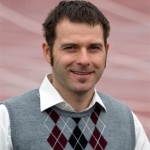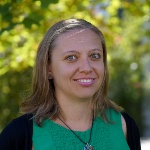Our Research
The group of Tobias Siebert is investigating the biomechanical properties and structure-function relationships of the different types of muscle found in the body: smooth muscle found in the internal organs, skeletal muscle that ensures the body movements and cardiac muscle (the muscle of the heart).

The goal of his team is to reveal the basic principles of muscle force generation and to develop organ models. Specifically, there is a critical need for the development of in silico organs that would model the urinary bladder, stomach, intestine, or skeletal muscles, and help us understand dysfunctions of these organs, both for research purposes and also for allowing the simulation of medical procedures and give doctors information about post-surgery effects on the organ functionality.
Focus on the 3Rs
Existing models of organs and muscles are currently not able to reproduce the functionality of the organ as a whole, e.g. to describe both force generation and 3D organ deformation. The development of realistic models involves extensive experimental investigations of the tissue microstructure, as well as bringing together its passive and active characteristics, with its electro-chemical and mechanical properties.
In support of the 3R principles, many of the team’s studies are carried out ex vivo, using pig tissues mainly derived from slaughterhouse material. Pig organs like the stomach, intestine and bladder show great structural and functional similarities to human organs and are suitable as substitute models. Ex vivo analyses of tissue strips from the bladder, intestine and stomach serve to determine model parameters. Furthermore, the basic research on skeletal muscle in the Siebert lab is performed ex vivo using isolated rat muscle fibers. Experimental and in silico investigations on healthy organs generally serve the basic understanding and are complemented by investigations on diseased organs that bring additional benefit of social, clinical, and economic interest.
Contact

Tobias Siebert
Prof. Dr.
Raluca Tamas
Dr. rer. nat.3R-BioMedicUS Scientific Coordinator



